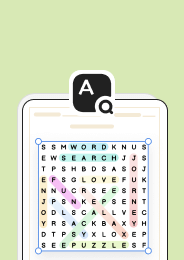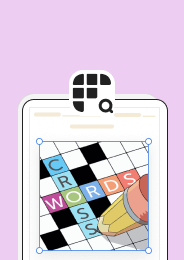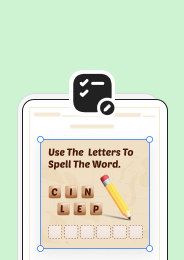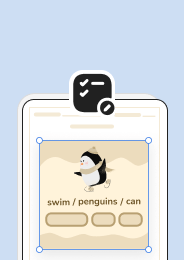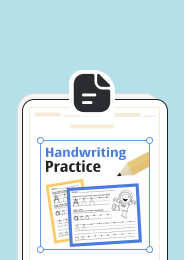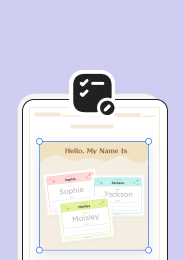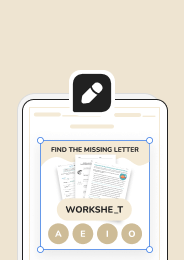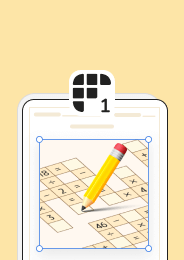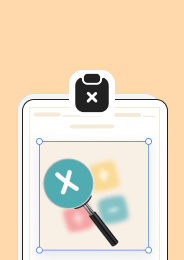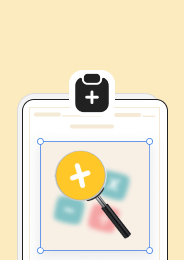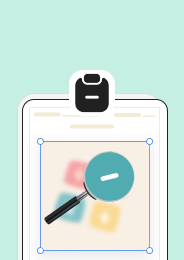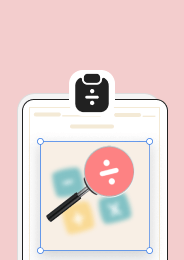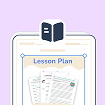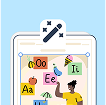Math activities for 4th graders can be so much more than just solving problems on paper. At this age, kids are starting to explore bigger ideas like multiplication, fractions, decimals, and real-world problem-solving.
The best way to help them master these concepts? Make math fun, hands-on, and full of discovery! So, in this blog, you’ll find a variety of math activities for 4th graders that are perfect for sparking curiosity, encouraging active learning, and boosting your students’ confidence along the way.
15 Math Activities for 4th Graders to Boost Skills
Ready to get started? Check out these effective math activities for 4th graders below:
1. Fraction Pizza Party
Before diving into fractions on paper, why not serve them up in a tasty way? This activity lets students visualize and manipulate fractions with a hands-on approach, making abstract ideas easier to digest.

Objective: Understand fractions and fraction operations.
Materials Needed:
- Paper plates or cardboard circles
- Markers
- Scissors
How to Play: Students design their own pizzas by dividing the “pizza” into fractions and topping each section differently. Teachers can challenge students with fraction-based questions like “What fraction has pepperoni?” or “Add two pizzas together — what’s the total fraction of mushroom toppings?”
Skills Practiced: Fraction identification, addition, subtraction, visual reasoning.
2. Multiplication Bingo
Make multiplication practice fun for 4th graders with these fast-paced math activities. Students compete to cover answers and call out “Bingo!” while reinforcing multiplication facts.

Objective: Reinforce multiplication facts through play.
Materials Needed:
- Bingo cards with multiplication answers
- Caller’s list of multiplication problems
- Counters or markers
How to Play: The teacher calls out multiplication problems, and students cover the correct answers on their cards. The first to complete a line shouts “Bingo!”
Skills Practiced: Multiplication fluency, quick recall.
Click here to grab Fun Multiplication Bingo Game Worksheets.
3. Math Scavenger Hunt
Let students stretch their legs while sharpening their measurement and observation skills. This hunt combines math with real-world context.

Objective: Apply measurement and estimation in real-world scenarios.
Materials Needed:
- Rulers, measuring tapes
- Premade scavenger hunt list (e.g., “Find something 12 inches long”)
How to Play: Students search the classroom or home for objects that meet the measurement challenges on the list.
Skills Practiced: Measurement, estimation, observation.
4. Place Value War (Card Game)
Big numbers become a friendly competition! This card game reinforces number sense and place value in a fun and engaging way.

Objective: Strengthen place value understanding.
Materials Needed:
- Deck of cards
How to Play: Each player flips 3-5 cards to form a multi-digit number. The player with the largest number wins the round.
Skills Practiced: Place value, number comparison.
5. Real-World Budget Planning
Math activities crafted to turn abstract math concepts into real-world understanding for 4th graders don’t get better than this. Students plan a shopping spree, calculate totals, and stay within budget — learning valuable money skills along the way.

Objective: Apply math to financial decisions.
Materials Needed:
- Shopping catalogs or printouts
- Budget sheets
- Calculators
How to Play: Students select items to “buy” without exceeding a set budget. Great for practicing money sense and math operations.
Skills Practiced: Addition, subtraction, budgeting.
6. Geometry Shape Hunt
Learning about shapes doesn’t have to stay inside the pages of a textbook — in fact, the world around us is packed with opportunities to explore geometry! The Geometry Shape Hunt turns this abstract concept into a hands-on discovery adventure.

Objective: Recognize 2D and 3D shapes.
Materials Needed:
- Shape checklist, including both common 2D shapes (like circles, rectangles, hexagons) and 3D shapes (like spheres, cones, and cubes)
- Clipboards
- Pencils
How to Play: Students find and record shapes in the classroom or outdoors, identifying objects that match the shapes on their checklist.
Skills Practiced: Geometry recognition, critical thinking.
7. Equivalent Fractions Puzzles
Puzzles meet math! Students match equivalent fractions, deepening their understanding of this essential concept through visual and logical connections.

Objective: Understand equivalent fractions.
Materials Needed:
- Pre-made fraction puzzle cards
How to Play: Students match different visual representations of equivalent fractions to complete a puzzle.
Skills Practiced: Fraction reasoning.
8. Area and Perimeter Challenge
Let students apply measurement concepts to real-world objects. This activity connects classroom learning to their environment.

Objective: Calculate area and perimeter.
Materials Needed:
- Graph paper
- Rulers
How to Play: Students measure classroom objects and calculate both the area and perimeter. This makes abstract concepts tangible.
Skills Practiced: Measurement, multiplication, addition.
9. Word Problem Relay Race
Get students moving while building their problem-solving muscles!
The Word Problem Relay Race encourages students to work together in teams to solve real-world math scenarios — all while turning math practice into an exciting, fast-paced classroom competition.

Objective: Solve multi-step word problems collaboratively.
Materials Needed:
- Word problem cards
How to Play: Teams race to solve as many word problems as possible within a time limit.
Skills Practiced: Problem-solving, teamwork, multi-step reasoning.
10. Roll and Solve Multiplication Dice Game
Math meets luck in this exciting dice game! Students roll, multiply, and tally their way to victory while reinforcing math facts.

Objective: Strengthen multiplication fluency.
Materials Needed:
- Two dice
- Score sheets
How to Play: Students roll two dice, multiply the numbers, and record the result. The highest total at the end wins.
Skills Practiced: Multiplication, mental math.
11. Interactive Math Journals
If you’re searching for math activities designed to make learning both fun and effective for 4th graders, math journals are the perfect blend of writing and problem-solving. Students reflect, solve, and illustrate their math thinking.

Objective: Develop written math communication skills.
Materials Needed:
- Notebooks
- Pens, markers
How to Play: Students write and solve math problems in journals, then illustrate their solutions or reflect on what they learned.
Skills Practiced: Written communication, math reasoning.
12. Data Collection & Graphing Project
Make math personal by letting students gather, represent, and analyze data from their own environment. Real-life relevance adds extra engagement.

Objective: Introduce data representation and analysis.
Materials Needed:
- Surveys or observation sheets
- Graph paper or digital graphing tools
How to Play: Students collect data (e.g., classmates’ favorite fruits) and present the results as bar graphs or line plots.
Skills Practiced: Data collection, interpretation, graphing.
13. Decimal Place Value Match
Decimals don’t have to be intimidating! This matching game makes place values concrete and visual, deepening decimal understanding.

Objective: Understand decimal place values.
Materials Needed:
- Decimal cards
- Expanded form cards
How to Play: Students match decimals to their correct expanded forms.
Skills Practiced: Decimal recognition, place value understanding.
14. Measurement Conversion Station
Give students practical experience with unit conversions through hands-on stations that encourage independent thinking.

Objective: Practice converting measurement units.
Materials Needed:
- Conversion charts
- Measurement tasks (e.g., convert inches to feet)
How to Play: Students rotate through stations, converting different units of measurement.
Skills Practiced: Conversion, multiplication, division.
15. Escape Room: Math Edition
The ultimate in fun, this is one of those math activities for 4th graders that turn ordinary lessons into exciting math adventures. Students work in teams to solve puzzles and unlock the “escape” in a thrilling, collaborative environment.

Objective: Apply various math concepts to solve puzzles.
Materials Needed:
- Pre-designed math puzzles
- Locked boxes or virtual escape room setup
How to Play: Students work in teams to solve math puzzles to unlock clues and “escape” within a time limit.
Skills Practiced: Logical reasoning, problem-solving, teamwork.
FAQs
1. How to help a 4th grader with math?
Supporting a 4th grader in math starts with building a strong foundation in basic concepts like multiplication, division, fractions, and place value. Encourage them to practice regularly through games, real-life problem-solving, and interactive activities to make learning engaging and less intimidating.
2. How do you teach math in a fun way?
Teaching math in a fun way involves turning abstract ideas into hands-on experiences. Use puzzles, group challenges, math games, and real-world scenarios like budgeting or measuring objects. Activities that mix play with problem-solving help students stay motivated and build confidence.
Final thoughts
These math activities for 4th graders are designed to balance academic rigor with interactive fun. By integrating hands-on tasks, real-world scenarios, and playful challenges, teachers can make math lessons both effective and memorable. Try adding a few of these to your next math block and watch your students’ confidence soar!
Looking for more ways to keep your math lessons fresh and inspiring? Discover a wide range of printable worksheets, games, and creative math worksheets for 4th graders on Worksheetzone to bring even more energy and variety to your classroom!


